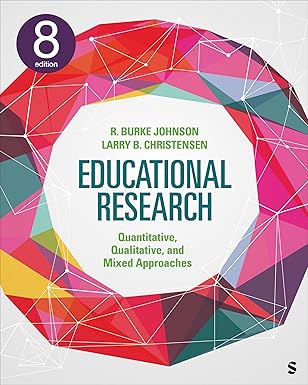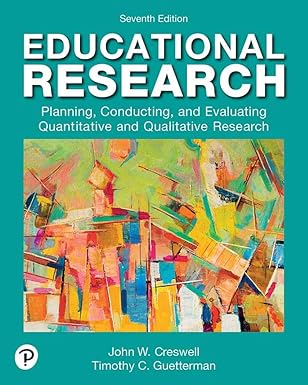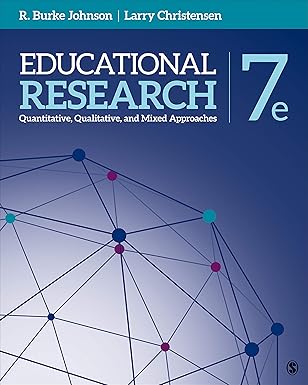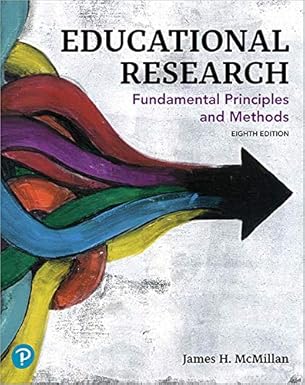Trying to grasp educational research methods can often be tricky because the concepts involved are so complex. That's why you really need a systematic and patient approach if you want your understanding to develop gradually and in depth.
Start Reading Educational Research Methods with the "Why"
The wisest first step is to recognize the entire purpose of research method itself. Methodology isn't just about technical procedures; it's a philosophical foundation that guides how we think about answering a research question. Understanding why a particular method is chosen is far more crucial than simply knowing how to execute it. For this reason, I highly recommend reading with a sharp focus on the ontological, epistemological, and axiological underpinnings of any research approach.
Thematic and Comparative
Next, you need to read methodological texts thematically, not just chronologically. You shouldn't immediately accept every chapter or section of a methodology book at face value. Instead, try to understand the concepts by constantly comparing one idea to another. This comparative study prevents you from simply memorizing procedures and forces you to engage with the underlying philosophy.
For instance, when studying quantitative versus qualitative approaches, avoid rushing to conclude that one is inherently superior to the other. Your primary focus should be on the context of their application and the specific research goals you are trying to achieve. Recognizing the distinct objectives—one aiming for generalizable numerical data, the other for deep, interpretive understanding—is the key to mastering methodology, not simply learning the steps.
Choosing and Applying Authoritative Sources
Choosing your reading materials wisely is an essential step in building methodological confidence. You must move past generic guides and prioritize methodology books that have been tested and recommended by established experts in the field of educational research. The content of these authoritative texts provides the solid, theoretical framework necessary to differentiate between various research paradigms. This foundational knowledge ensures you understand the core debates and underlying philosophies before you ever attempt to apply a specific technique.
However, theoretical knowledge is insufficient on its own; it must be connected to practical application. This is why it is highly beneficial to supplement your textbook reading with academic journal articles that actually implement the methods you are learning. These empirical studies act as bridges, transforming abstract concepts—like grounded theory or path analysis—into tangible research actions. By seeing the methodology in practice, you gain a clearer picture of how difficult decisions are made in the field, such as justifying sample size or selecting the appropriate statistical test.
This process of dual-track learning—combining theoretical texts with real-world articles—is what clarifies the critical relationship between theory and practice. The close examination of scholarly work shows you exactly where philosophical assumptions meet the practical constraints of a study. Reviewing these articles does more than just deepen your understanding; it equips you with the critical judgment needed to assess the rigor and validity of any research, ultimately preparing you to conduct your own studies with genuine confidence and competence.
Practice, Critique, and Discussion
Finally, the most effective way to test the depth of your understanding is by practicing the design of your own research study, even a simple one. By actually sitting down and attempting to construct a background section, define a research problem, formulate objectives, and choose an appropriate methodology, abstract methodological concepts transform from static theory into a dynamic, useful thinking tool. This process forces you to integrate all the philosophical and technical knowledge you have acquired, revealing the specific gaps in your comprehension that mere reading might have missed.
Designing your own study demands you make concrete, justified decisions. You are compelled to defend why a certain sampling technique is best for your target population, or why a specific data analysis procedure aligns with your research question's ontology. This practical exercise moves the knowledge from your memory into your skill set, building the "methodological muscle" required to execute sound research rather than simply discussing it in theory.
In parallel with practical design, engaging in discussion is a crucial path to reinforce your understanding. Actively involving yourself in study groups or scientific forums can expose you to new perspectives that you might never have considered on your own. When encountering a contrasting viewpoint, you are challenged to rigorously defend your own methodological choices, deepening your conviction and clarity.
Often, true comprehension crystalizes not from the initial act of reading, but from the effort required to explain what you have read back to someone else. The need to articulate complex concepts clearly and logically forces a final organizational process in your own mind. When you teach or explain a method—for instance, clarifying the difference between purposive and convenience sampling—you solidify your own mastery of the subtle distinctions.




